
Team Creativity Techniques
Abstract
Dianna and Carl discuss team creativity techniques, especially relating to FMEA.
ᐅ Play Episode
Your Reliability Engineering Professional Development Site
by Dianna Deeney Leave a Comment

Dianna and Carl discuss team creativity techniques, especially relating to FMEA.
ᐅ Play Episode
by Greg Christensen Leave a Comment

Here’s a very special episode for you!! It’s The Ethan Almighty Story with Jeff Callaway of Kentucky Humane Society! We discuss how they use Brightly but quickly focus in on the story of Ethan on CMMSradio recorded from Brightly Illuminate 2024 in Raleigh NC. Ethan, sometimes called Hero Dog, is a true fighter that was literally minutes away from death. His story is out there and Jeff Callaway, his handler and owner (“I knew that is my dog”), tells some of the story here. You can find the story everywhere. BE sure to visit https://ethanalmighty.com/ or find Ethan on Facebook here:  / ethanalmighty-100085380373853 and keep an eye out for the movie!! Ethan Almighty!! Thank you, Jeff, for sitting down with us to record this episode about facilities management at the Kentucky Humane Society, how you use Brightly, and the amazing story of Ethan!! We look forward to watching the journey and seeing you again one day soon!
/ ethanalmighty-100085380373853 and keep an eye out for the movie!! Ethan Almighty!! Thank you, Jeff, for sitting down with us to record this episode about facilities management at the Kentucky Humane Society, how you use Brightly, and the amazing story of Ethan!! We look forward to watching the journey and seeing you again one day soon!
by Greg Christensen Leave a Comment

The Maintenance Journey and How a CMMS Fits into Pursuing Maintenance Excellence!
They’re making something innovative at the Oshkosh Defense Spartanburg SC plant. We’ll get into that and a whole lot more.
We had the honor and pleasure of hosting Trent McJunkin, CMRP, Facilities & Maintenance Manager at Oshkosh Defense for a journey story conversation that shows how Trent got into the space, where he “cut his teeth,” and how mentors along the way shaped his growth into a true leader! We get into the role a CMMS plays and there’s a reveal at the end. We’ll see who catches that!!
by Christopher Jackson Leave a Comment

Chris and Carl discuss a listener question on FMEA RPN and connection to reliability requirements.
ᐅ Play Episode
by Ansumi de Bruin Leave a Comment
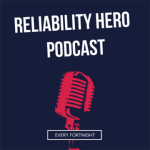
Christer is a world-renowned expert within Reliability and Maintenance. His career began in the Swedish merchant marine where he started developing the fundamentals of his Results Oriented Reliability and Maintenance Management concept. During the last 40 years this concept has evolved during his time as mechanic crafts person, engineer, manager, consultant, educator, philosopher, reliability guru and company leader.
He is the author of literally thousands of articles and is the winner of numerous awards. Often referred to as the Godfather of Reliability, his memoir “Knocking Bolts” details his journey’s throughout the world and how those experiences directly tie to Reliability and Maintenance.
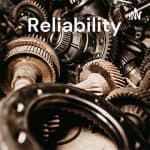
In this episode, I speak with Sandeep Jadhav about Machine Learning and Artificial Intelligence in Maintenance and Reliability.
We discuss the implementation of Machine Learning in the Industry, the challenges it presents, and what can be done to implement it successfully.
by Greg Christensen Leave a Comment

Watch this video, or listen, if you want some real talk about those VPs that parachute in and start making changes – It’s more of a call to action not just a critique – Ton’s of real insights throughout this episode with George Williams, CEO of ReliabilityX, telling it like it is for us all to benefit.
We discuss the challenges and dynamics of maintenance management and technology. How high-level decisions by VPs, often lacking hands-on experience, can disrupt maintenance operations. The importance of asking tough, honest questions during interviews and discussions to truly benefit the industry.
George outlines upcoming courses on asset management and CMMS utilization, highlighting their system-agnostic approach. This conversation underscores the commitment to community and knowledge-sharing, focusing on improving practices and achieving win-win outcomes in maintenance and reliability.
by Mike Konrad Leave a Comment
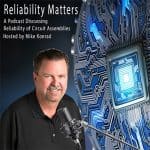
Today, I’m joined by two of the most respected names in the electronics manufacturing industry, Phil Zarrow and Jim Hall. Together, they bring decades of hands-on experience and unparalleled insight into the challenges and solutions within our field.
Jim and Phil are the driving forces behind ITM Consulting, where they help manufacturers around the world improve processes, solve complex problems, and build more reliable products.
Whether it’s soldering, cleaning, reflow profiling, process control, or failure analysis, these two have seen it all, fixed it all, and taught it all.
In this episode, we tackle some of the most pressing issues facing the industry today, from the challenges of miniaturization, the reality of voiding, to the rise of electronics deployed into harsh environments, to IPC standards, and the role of process control in ensuring long-term reliability.
Whether you’re a process engineer, a quality manager, or simply passionate about electronics manufacturing, this is a conversation you won’t want to miss.
ITM Consulting:
by Carl S. Carlson Leave a Comment

Carl and Chris discuss the broad subject of reliability allocation. What is it, when is it used, and what are the primary pitfalls to success?
ᐅ Play Episode
by Greg Christensen Leave a Comment

Meet Igor Marinelli the CEO and Co-Founder of TRACTIAN joining us for a great journey story where we get into present times with a view toward the future! You’ll learn why they focus only on maintenance management in manufacturing with some examples.
We tried to do this at The Reliable Plant Conference 2024 in Chicago, IL but had to go virtual. Everyone was super busy at this event.
We would love your input on this episode! It’s an episode with a little bit of everything, even a few laughs, as we jump from topic to topic.
🤘 Tell us your favorite topic or segment with a comment! 🤘
by Carl S. Carlson Leave a Comment

Carl and Dianna discuss two of the least understood and potentially powerful FMEA data elements: Special Product Characteristics for Design FMEAs, and Special Process Characteristics for Process FMEAs.
ᐅ Play Episode
by Greg Christensen Leave a Comment

Zachary Seeley, the CEO of FSI, joins CMMSradio to talk about their Healthcare CMMS , FSI recently winning the Reader’s Choice Award, and more.
Tune in for a great conversation and let us know your thoughts about the topics covered. Be sure to like, comment, and share this episode.
Use this form to connect with FSI for a discovery call and demo: https://www.fsiservices.com/cmmsradio
You can find Zachary Seely on Linked in and we encourage you to look into FSI if your looking for a healthcare CMMS – It is purpose built for the healthcare environment!!
by Dianna Deeney Leave a Comment
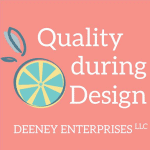
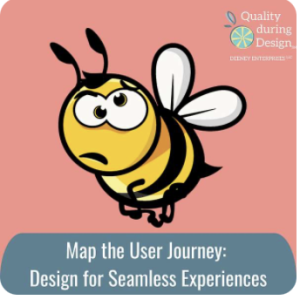
It’s important to evaluate the customer’s use process during concept development.
Rather than focusing solely on what your product does, understanding how users will interact with it creates opportunities to design more intuitive, enjoyable experiences. By mapping out the steps users take from beginning to end using process flowcharts, development teams gain clarity on inputs, outputs, and the journey between them.
Whether you need to simplify complex steps, compare competitor approaches, or identify critical-to-quality elements, these analytical methods help prioritize design decisions based on what truly matters to users.
The goal is creating products that feel intuitive and natural, preventing those awkward validation testing moments when engineers want to shout, “You’re doing it wrong!” When we evaluate the use process early, we develop products others love while minimizing costly redesigns and user frustration.
by Greg Christensen Leave a Comment

If you don’t know Tony Gunn, host of The Gunn Show Podcast VIP Edition and Director of Global Operations at MTD CNC joins CMMSradio to tell a bit of his journey story, how he got into manufacturing, where his passions for the manufacturing space, and all the amazing things he’s seen across the globe.
There is a lot to Tony’s journey, all interesting, and he knows how to tell a story in an engaging way. He truly loves talking all things manufacturing and that shines through. This is a transparent and real conversation. Completely unscripted. Lots of great stories about manufacturers in different regions, a bit about automation, and… get this… Hip Hop. Fun episode!!
We did talk about IMTS, the broadcast team, and encourage you to keep an eye out for Tony and the MTD CNC team. A few company shout outs that will be featured from this event. Lots of cool things happening at IMTS. It’s less than 25 days until the event starts!! We’re guessing this might hit 140,000 attendees or more.
Be sure to watch or listen to this episode for your name or company – Lots of shout outs.
Check it out and let us know your favorite parts in the comments. Share it, especially if your in it. Way too many to tag but feel free to repost with tags (tag back please).
Follow #CMMSradio for more episodes, updates, and journey stories.
Connect with MTD CNC here: https://mtdcnc.com/

Dianna and Carl discuss the relationship between Hazard Analysis (HA) and Failure Mode and Effects Analysis (FMEA).
ᐅ Play Episode
 Ask a question or send along a comment.
Please login to view and use the contact form.
Ask a question or send along a comment.
Please login to view and use the contact form.